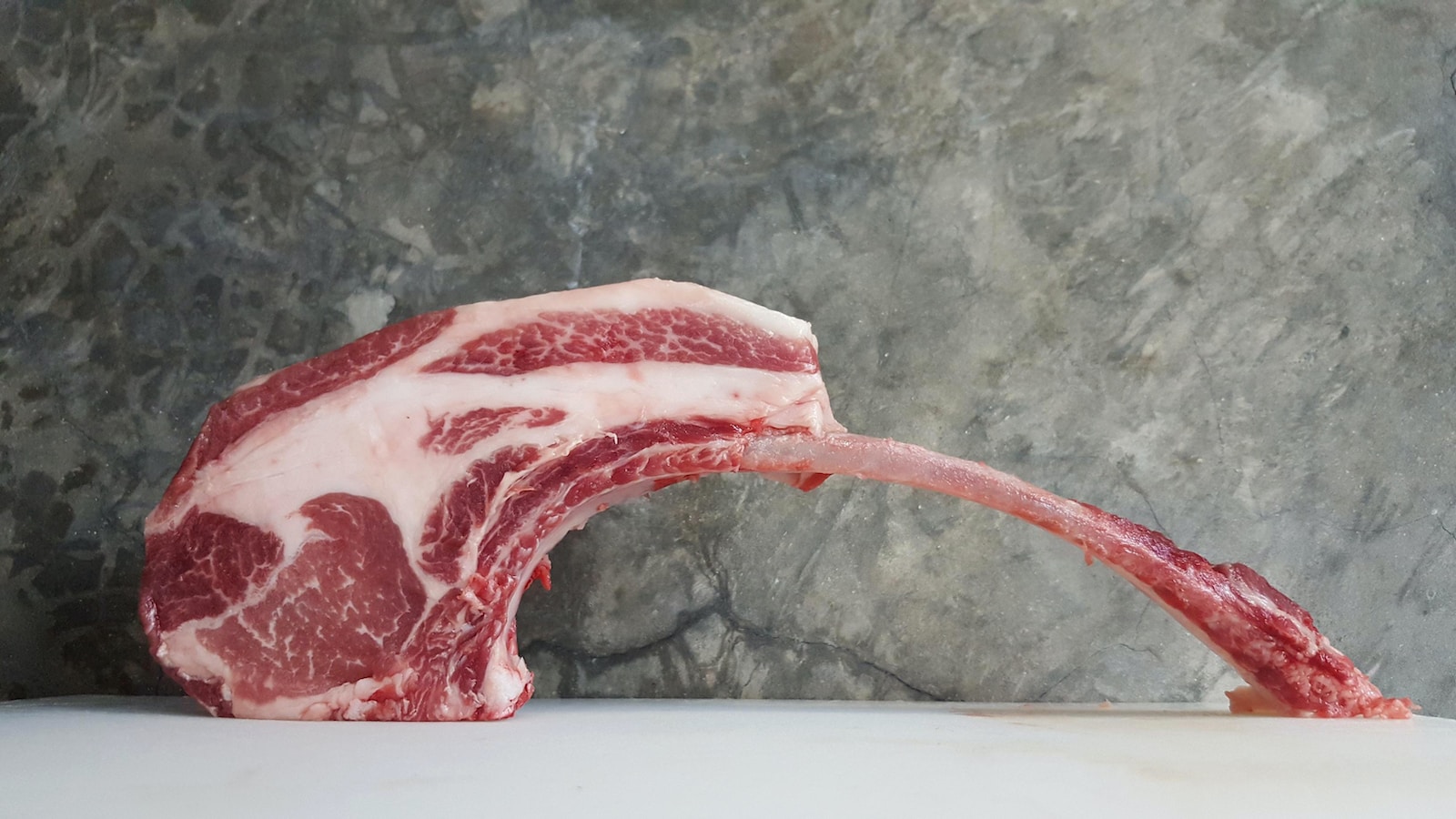Summary. The carnivore only diet is gaining popularity. But there are still some questions about whether the diet works, and if it is necessarily healthy. To find out, experts have conducted extensive research to examine the effects of such a restricted diet. Results from some studies suggest that people on a carnivore only diet can enjoy health benefits, like improved cholesterol levels. However, other experts advise that such a limited diet can be low in essential nutrients, and that more research is needed before determining its long-term health effects. Ultimately, each individual must assess their own situation before deciding if the diet is right for them.
Are you considering trying the carnivore only diet? While it may be all the rage right now, there are some important questions to ask yourself before adding it to your lifestyle. What is the carnivore only diet and what are the potential benefits and risks of this restrictive eating method? Is the carnivore only diet actually successful and healthy?
The carnivore only diet is a new and increasingly popular eating approach that focuses on animal foods. It requires eliminating all plant-based foods, including fruits, vegetables, legumes, grains, and nuts.
It also includes other animal products like eggs, dairy, and gelatin. This diet eliminates all plant-based foods, so those who follow it must make sure they are getting all the necessary micronutrients and macronutrients from animal sources. Proponents of the carnivore only diet believe that it may offer numerous health benefits such as improved digestion, better blood sugar control, weight loss, and improved mental clarity.
Along with these potential benefits, there are some challenges and risks associated with this diet. With no sources of dietary fibre, it may lead to deficiency of vitamins and minerals that are mostly found in plant-based foods.
So is the carnivore only diet actually successful and healthy? There is limited scientific data regarding the long-term health effects of this diet. Ultimately, the answer will depend on the specific needs of each individual. Before deciding to go on the carnivore only diet, it’s important to consult your doctor or a dietitian to assess your overall health and discuss any potential risks.
Principles of the Carnivore Diet

The carnivore diet is a dietary trend that has become increasingly popular in recent years. On the surface, this eating plan is pretty straightforward: follow a diet composed entirely of animal-based foods. It eliminates all plant-based foods, including vegetables, fruits, legumes, grains, nuts, and seeds.
Proponents of the carnivore diet claim that this is the healthiest and most natural eating plan. However, the scientific community is divided when it comes to determining whether the carnivore diet is actually successful or healthy. First, let’s look at the theoretical basis behind this diet.
Some suggest that when we eat exclusively animal-based foods, it can increase energy levels, improve mental clarity, reduce inflammation, and improve overall health. Additionally, many people who follow the carnivore diet report significant weight loss.
However, there is little scientific evidence to back up these claims. Secondly, let’s look at potential risks associated with the carnivore diet. Since this type of eating eliminates nearly all plant-based foods, it significantly limits the variety of vitamins and minerals necessary for optimal health.
Additionally, it cuts out several important antioxidant-rich foods, which helps to fight inflammation. Some critics of the carnivore diet argue that it does not lead to long-term health, as it lacks many of the benefits that plant-based foods provide. Ultimately, the carnivore diet can be an effective way to lose weight in the short-term, however, its long-term success is subject to debate.
While some people have found success in this type of eating, it could potentially lead to deficiencies if not done carefully. If a person chooses to follow this diet, they should ensure that they are meeting all of their nutritional needs, rather than relying solely on animal-based foods. If done in a balanced way, it can be an effective tool for weight management.
Potential Health Benefits of the Carnivore Diet


The carnivore diet has been gaining traction lately as a way to lose weight and improve health. On the surface, it appears to make sense; the diet strictly restricts all foods except for meat, so you’re eating a very clean and nutrient-dense diet. But is the carnivore-only diet actually successful or healthy? First, let’s look at the potential health benefits of a carnivore diet. Many proponents of the carnivore diet have reported increases in energy, clarity of thought, better digestion, and better sleep.
Some people have also seen improvements in joint pain, heart health, and mental health when following a carnivore diet. Since the diet eliminates processed foods and focuses on nutrient-dense animal proteins, you are likely to get more of the vitamins and minerals your body needs to function optimally.
With that said, some of these health benefits could be due to cutting out unhealthy foods and making healthier food choices in general, rather than just eating meat. At the same time, the carnivore diet has some potential drawbacks.
Additionally, it can be difficult to get enough fiber on the diet, which has been linked to improved digestion and a lower risk of chronic diseases. Finally, the diet could lead to nutritional deficiencies if not monitored closely, since it lacks some of the essential vitamins and minerals found in plant-based foods. Overall, the carnivore diet can be a healthy choice if done in moderation and monitored closely.
While the diet does offer some potential benefits, it is important to remember that it eliminates some essential foods, so it is important to make sure you are getting all the vitamins and minerals your body needs. Additionally, it is always important to talk to your doctor before starting any drastic dietary changes.
Potential Risks Involved With the Carnivore Diet


When it comes to healthy diets, the Carnivore Diet is certainly gaining a bit of buzz lately. People claim it can help with weightloss, lead to better health outcomes as well as improved physical and mental performance. However, as with any extreme diet, there are potential risks involved.
So before you jump on the Carnivore Diet bandwagon, it’s important to know what the potential risks are for your individual health. First, it’s important to consider the fact that the Carnivore Diet can be low in essential vitamins and nutrients. If you’re not getting enough vitamins and minerals from the foods that you’re eating then you may be at risk of developing nutrient deficiencies.
It’s also possible that you could develop an eating disorder from restrictive and extreme eating habits. Additionally, if you’re not getting enough fiber, the Carnivore Diet can lead to constipation and digestive issues. Another potential risk of the Carnivore Diet is that it is high in saturated fat, sodium, and cholesterol. All of these can increase your risk of heart disease and other cardiovascular issues. Additionally, a diet high in animal proteins can cause your body to produce more acid, which can lead to an imbalance in your bone calcium.
Finally, it’s important to remember that the Carnivore Diet is still relatively new, and there is not enough research to determine its long-term effects. So, even if the diet does help you lose weight or provides you with other short-term benefits, you may still be at risk for developing other health issues in the future.
The Carnivore Diet may be helpful for some people, but there are potential risks involved. It is important to talk to your doctor about any extreme diet before starting it so that you can ensure that it will work for you in the long run and that you understand the potential risks.
Pros and Cons of the Carnivore Diet


When it comes to the pros and cons of the carnivore diet, there is a lot of debate about whether it is actually successful or healthy. The diet involves eating only meat and excludes all other foods, including dairy, grains, fruits, and vegetables.
It is a controversial diet because some people believe it is a form of restrictive eating that can cause serious health problems, while others believe it can provide numerous health benefits. Proponents of the carnivore diet say it can improve overall health and help with weight loss. They point to studies that suggest it can reduce inflammation and improve metabolic health.
For these reasons, some people use the diet as a form of therapeutic intervention. But the diet isn’t without its drawbacks. Critics argue that the diet could potentially lead to a nutrient deficiency that could be detrimental to health. Additionally, it may not be an enjoyable way of eating for many people, and because there is no variety in the foods eaten, it could get boring after a while.
Ultimately, the decision to try the carnivore diet should be based on the individual’s personal preferences. Those who are looking for a sustainable way to improve their health, are willing to focus on nutrient-dense and high quality meats, and are willing to experiment with the diet may find it to be a beneficial way of eating. But it’s important to note that it’s not for everyone, and those who are considering it should speak to their healthcare provider before starting it.
Who Might Benefit Most From a Carnivore Diet


When it comes to diet and health, there’s no one-size-fits-all approach. That’s why so many people are interested in the carnivore diet, which is essentially an extreme version of a low-carb diet. This eating plan eliminates all plant-based foods and focuses solely on animal protein, fat, and organ meats. While some have touted the potential benefits of such an extreme diet, there are others who are more skeptical about whether it is actually safe or successful in the long run. The argument for the carnivore diet is that it can reduce inflammation, balance hormones, and even potentially help with weight loss.
While there is some evidence to support these claims, it is far from conclusive. So, who might be most likely to benefit from a carnivore diet?The most likely candidates for success with this type of diet are those who have trouble controlling their carbohydrate cravings and can benefit from eliminating all sources of carbohydrates and is overweight or clinically obese and seeks to benefit from using a stricter diet. A carnivore diet may also be beneficial for those who suffer from autoimmune disorders or have chronic inflammation or pain.
However, it is important to remember that this diet should only be pursued under the guidance of a physician or dietitian as it eliminates certain essential nutrients that may be necessary for overall health. In short, the carnivore diet may be a good choice for some individuals, such as those with chronic health conditions, who are looking for a strict way of eating that can help improve wellbeing. However, it’s important to remember that this is not a one-size-fits-all approach, so it’s important to consult a qualified healthcare professional to decide whether this particular diet is right for you.
What Foods Are Allowed on the Carnivore Diet


The Carnivore Diet, also known as the “all-meat diet,” is one that consists only of animal-based products such as beef, poultry, fish, eggs, and other dairy products. One of the biggest questions surrounding this diet is whether or not it is healthy or even successful. To answer this question, let’s take a look at what experts have to say. The Carnivore Diet is based primarily on animal products, as already mentioned, and this can provide a lot of the essential nutrients that are needed for a healthy and balanced diet.
In addition, the Carnivore Diet tends to be very low in carbohydrates and sugar, which can be beneficial for people looking to lose weight and prevent diabetes, heart disease, and other related conditions. However, there are some drawbacks to the Carnivore Diet. One of the main ones is that it can be difficult to maintain a balanced diet with only animal products.
Additionally, some people on the Carnivore Diet have reported feeling fatigued and weak, as the lack of variety in their diet can cause nutrient deficiencies. It’s important to point out that there is no one answer to the question of whether or not the Carnivore Diet is healthy or successful. Each person’s dietary needs are different, and it’s important to consult a doctor or dietician before making any drastic changes to one’s diet. However, if done properly, the Carnivore Diet can provide essential nutrients and potentially be beneficial to those looking to lose weight or improve their overall health.
Tips and Strategies for Starting a Carnivore Diet


Starting a carnivore diet can be a daunting prospect. After all, limiting yourself to only eating meat can seem like a recipe for disaster. However, it doesn’t have to be a bad experience. By following a few simple tips and strategies, you can make sure that your first foray into the world of carnivorism is a successful and healthy one.
To start, it’s important to make sure that you are getting all the essential nutrients you need from your meat. This means you should ensure that the meat you eat is of good quality, and that it’s an adequate source of vitamins and minerals. The best meats for this purpose are lean cuts of pork, poultry, and fish.


It’s also important to make sure that you keep a balanced diet. Eating a variety of meats can ensure that you get all the necessary micronutrients and macronutrients. In addition, be sure to include essential fats, such as those found in grass-fed butter, eggs, and some seafood. This can help to keep your energy levels stable and your health balanced. In addition to maintaining a healthy diet, it’s important to stay hydrated. Drinking plenty of water throughout the day can help to prevent constipation, which is common among carnivores.
And finally, it’s essential to make sure that you are getting enough exercise when you start a carnivore diet. Regular physical activity helps to support your bones and muscles and can even help to improve your mental health. Aim for at least thirty minutes of exercise a day and you should see positive results. Overall, it is possible to lead a successful and healthy carnivore diet, as long as you follow these tips. Incorporating variety and nutrients into your diet, as well as staying hydrated and active, are key to success. With careful planning and commitment, you can jumpstart a healthy lifestyle and improve your wellbeing.
The Takeaway: Bottom Line
The carnivore only diet has become increasingly popular in recent years. The idea is that it is an easy and effective way to stay healthy and shed excess weight. But is the carnivore only diet actually successful or healthy? In comparison with more balanced diets, the carnivore only diet is said to be restrictive and can cause nutrient deficiencies, which can lead to unhealthy outcomes in the long-term.
On the other hand, some proponents argue that having more fat and protein, and fewer carbohydrates, can result in health benefits. So let’s examine the evidence. The debate centers on the nutritional value of this all-meat diet. Protein intake is higher in this type of diet, while fiber and carbohydrates are greatly reduced.
Experts suggest that these nutritional deficits can lead to deficiencies in key vitamins and minerals, such as calcium, vitamin C, potassium, and magnesium, as well as health concerns, such as osteoporosis, anorexia, and chronic fatigue. Supporters of the carnivore only diet cite its potential to improve disease risk factors. Studies show that this type of diet can result in lower cholesterol and triglyceride levels and improved inflammation.
Although this data suggests potential benefit, these studies have been small and usually short-term. We still need larger and longer-term studies to see if the potential benefits translate into improved overall health in the long run. At the end of the day, the final decision will be up to the individual. While the carnivore only diet may yield some short-term benefits, the lack of essential nutrients can limit its effectiveness in the long-term.
So is the carnivore only diet actually successful or healthy? It seems that the answer to the question is ultimately unclear. While there are some potential benefits, major nutritional deficiencies can put a person’s health at risk.
Until more long-term studies are conducted, it is important to question whether this type of diet is a viable option for improving health in the long run. Do you think the carnivore only diet is a viable option for improving health? What nutritional deficiencies could be caused by this type of diet? What are the potential long-term health benefits of this diet? What other types of diets may be healthier and more balanced?
Frequently Asked Questions (FAQs):
What is the carnivore-only diet?
The carnivore-only diet, also known as the zero-carb diet or the all-meat diet, is a dietary approach that involves consuming only animal products, such as meat, fish, eggs, and dairy, while excluding all plant-based foods.
Is the carnivore-only diet successful for weight loss?
The carnivore-only diet has been reported by some individuals to result in weight loss. However, it is important to note that the success of any diet for weight loss can vary between individuals, and factors such as overall calorie intake and physical activity levels also play a significant role.
Can the carnivore-only diet provide all the necessary nutrients for a healthy body?
While animal products can provide essential nutrients like protein, vitamins, and minerals, the carnivore-only diet eliminates many plant-based foods that are important sources of fiber, antioxidants, and various phytochemicals. This exclusion may pose challenges in obtaining a well-rounded nutrient profile.
Is the carnivore-only diet considered healthy by nutrition experts?
The carnivore-only diet is not widely supported or recommended by nutrition experts and health organizations. Its extreme nature and lack of scientific evidence to support long-term safety and health benefits raise concerns among professionals.
What are the potential risks and drawbacks of the carnivore-only diet?
Some potential risks and drawbacks of the carnivore-only diet include nutritional deficiencies, particularly in fiber and certain vitamins and minerals, increased saturated fat intake, higher risk of heart disease and other chronic conditions, and potential adverse effects on gut health and microbiota diversity.
Can the carnivore-only diet be sustained in the long term?
The long-term sustainability of the carnivore-only diet is questionable due to its restrictive nature and potential nutrient deficiencies. Regularly excluding a wide range of plant-based foods may result in long-term health complications and make it challenging to meet the body’s nutritional requirements.
Are there any scientific studies supporting the carnivore-only diet?
Currently, there is limited scientific research specifically examining the carnivore-only diet. Most available evidence focuses on the benefits of a balanced diet that includes a variety of fruits, vegetables, whole grains, and lean proteins for overall health and well-being.
What is the recommended approach for a healthy and balanced diet?
Nutrition experts generally recommend a balanced diet that includes a variety of whole foods, including fruits, vegetables, whole grains, lean proteins, and healthy fats. Such an approach ensures a diverse nutrient intake, promotes overall health, and reduces the risk of nutrient deficiencies and chronic diseases.















